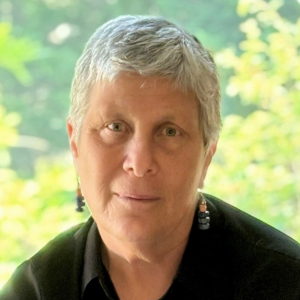
Will you tell us about your legal background?
I spent my career in Washington D.C. and Georgia advocating for labor rights, health care equity, victims of domestic violence, and more. I started with direct client work and later shifted to policy. I ended up working as a lobbyist at the American Federation of Government Employees, which was great because I got to work closely with our members. It’s been a wonderful range of experiences throughout my career. Now retired, I still feel drawn to working directly with clients.
Why did you choose to volunteer with Disability Rights Maryland (DRM)?
Throughout my career, I met attorneys who worked at Disability Rights Maryland, and I had tremendous respect for them. When I heard they needed help with a special education case, I felt drawn to it because my own children needed help when they were in school. For any parent, it’s painful when your child isn’t getting what they need. I had the financial means to pay for testing and an experienced advocate. I knew I was lucky.
Can you tell us about the case you’re working on?
My client, Felip, is a charming, loveable, and intelligent teenager who unexpectedly lost his vision. His grandmother, Lena, came to DRM for help because Felip’s school system wasn’t giving him the support he needed. I work closely with Lena, who is incredible. Felip is lucky to have her as the fiercest advocate. Together, we’re searching for a school placement that will allow Felip to thrive.
Can you share a memorable experience from your pro bono work?
We took Felip to interview at a potential placement school. It was lovely to sit with Felip and his grandmother and get to see him in this shining moment. The interviewers were nurturing and loving. I saw how he blossomed when someone finally focused on his strengths. It was a reminder that when people believe in you; it’s powerful. The conversation should always start with “you’re a great person, tell me about yourself” not “tell me about your challenges and failures.”
How has pro bono work made a difference in your client’s life?
When we got Felip’s current school to focus more on what Felip was doing well instead of what he wasn’t able to accomplish, things started to improve although we must remain vigilant. We helped them understand that Felip is a young person going through something traumatic. He’s doing his best. Now, his IEP team is starting to focus more on what a great young man he is and his enthusiasm for learning with the correct tools. It is extremely rewarding to see Felip advocating more for himself at IEP meetings and in the classroom. He is now working with more people who understand, respect, and believe in him, which is really what every student deserves.
While we’re still searching for a new school, I’m proud of the progress we’ve made with his current one.

Post a comment